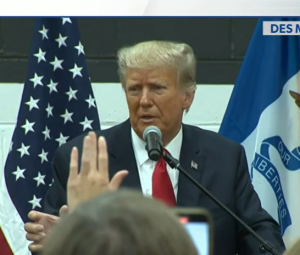On Friday, a court in Georgia issued a decision allowing early voting for the state’s US Senate runoff on November 26.
Fulton County Superior Court Judge Thomas Cox stated in a written decision that he had concluded that Georgia law did not forbid keeping the polls open on the Saturday following Thanksgiving after having “considered the moving papers, arguments of counsel, and references to legal authority.”
Democratic senator Raphael Warnock, who will face Republican rival Herschel Walker in a runoff election on December 6, won the decision. The Democratic lawsuit opposing state instructions prohibiting voting on that day was led by Warnock’s campaign.
Also read: What are runoff elections in the US?
In a hearing held earlier on Friday, state election authorities had claimed that early voting on the Saturday following Thanksgiving was not permitted because it would violate a state law that forbids voting on Saturday when a state holiday falls on the Thursday or Friday before.
“The Court finds that the absence of the Saturday vote will irreparably harm the Plaintiffs, their members, and constituents, and their preferred runoff candidate,” Cox wrote.
Republican Brad Raffensperger, the secretary of state for Georgia, disapproved of the judge’s ruling.
His office issued a statement saying, “We disagree with the court’s order and look forward to a prompt appeal.”
Also read: Donald Trump 2024: Why running for president will be harder
Cox stated earlier on Friday that “time was of the essence.” The judge questioned both parties during the 90-minute hearing, although he made a little indication of his position on the matter.
The Georgia Democratic Party, the Democratic Senate Campaign committee, and Warnock’s campaign filed the lawsuit earlier this week after Raffensperger’s office issued instructions prohibiting counties from doing early voting on the Saturday following Thanksgiving.
Election authorities in the state cited a section of the election code that prohibits early voting on Saturdays when the Thursday or Friday before is a state holiday. Democrats argued that the clause did not cover runoff elections. They have cited statements made earlier this month by state officials who suggested counties would hold early voting on that Saturday, as well as the fact that early voting was held on the Saturday following Christmas in 2020.
Also read: Can Donald Trump’s legal troubles affect 2024 presidential bid?
Uzoma Nkwonta, a representative for the Democrats, stated at the hearing on Friday that the last-minute change of heart was “wrong on the law, but it also implicates a fundamental right in our democracy.”
The statute had changed since 2020, according to Charlene McGowan, an assistant attorney general for Georgia who supported the state officials’ application of the rule. She claimed that it was an “unfortunate turn of events” that the calendar was set up in a way that prevented counties from offering early voting on that Saturday, but that it was not the court’s place to determine what the best course of action should be because the legislature was in charge of making that decision.
Also read: What Republicans winning the House means for the US
The legal significance of the remarks made by state officials earlier suggesting that counties could offer early voting on November 26 was among Cox’s inquiries. Additionally, he questioned whether the state’s policy represented a “reasonable” application of the law. The attorneys for the Democrats maintained that it wasn’t, while the attorneys for Georgia claimed that it was the “plain” and “logical” interpretation of the law.
“No one’s right to vote is being denied here,” McGowan claimed.
Legislation enacted in 2016 forbids early voting on Saturdays that fall after a Thursday or Friday state holiday. The runoff time was dramatically shortened by the Republican-led state legislature in 2021, and it will expire on December 6 this year.
Georgia has a state holiday on Friday in addition to the Thanksgiving holiday on Thursday.







